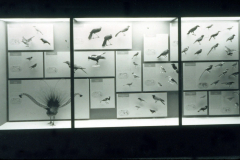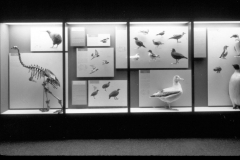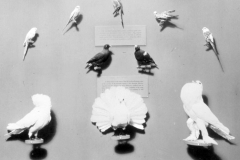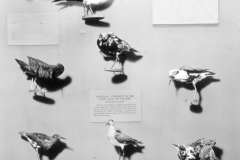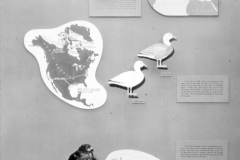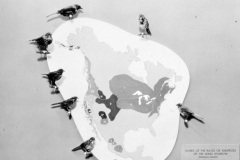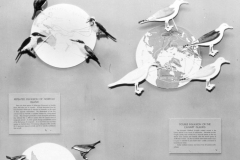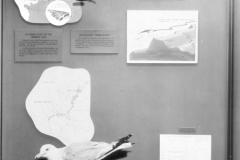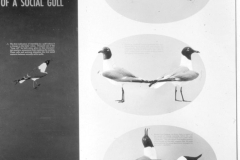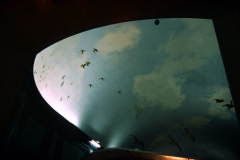
The synthesis period in evolutionary studies (most people call this the “evolutionary synthesis” or “Modern synthesis”) of the 1930s and 1940 has had a standard narrative for many years, but pressure has increased for revision. For example, there’s much more to Ernst Mayr than his authorship of the book, Systematics and the Origin of Species (1942). This paper reconstructs the exhibition Mayr helped designed at the American Museum of Natural History (AMNH). It also discusses the considerable range of activities Mayr had underway in the 1930s to support a programme he called, “bird biology”.
When Ernst Mayr arrived in New York in 1931, he carried considerable intellectual baggage. He was a disciple of Erwin Stresemann. He was an export, sent to America on short-term contract work. Mayr imported considerable factual knowledge about birds in the South Pacific, but he also arrived fully intending to transplant a research tradition derived from the Seebolm-Hartert and Stresemann “schools”. In his early correspondence, Mayr expressed great concern over the poor state of American ornithology. While he encountered many bird enthusiasts and nomenclature-based workers, he found only few “scientific” or biological workers. For a decade, he worked to improve this situation. Many activities show the imprint of his effort to convert American ornithology into a discipline focused on the biology of birds. The AMNH exhibition he worked on, the Sanford Hall’s “Biology of Birds,” offered a physical manifestation of this agenda (Cain 2009: 125).
I write about Mayr’s first decade at AMNH and the “Biology of Birds” exhibit in a paper (below) that appears as chapter 6 in Cain and Ruse (2009). The full citation is:
- Joe Cain. 2009. Ernst Mayr and the ‘Biology of Birds’, in Joe Cain and Michael Ruse, eds. 2009. Descended from Darwin: Insights into the History of Evolutionary Studies, 1900-1970 (Philadelphia: American Philosophical Society). ISBN: 9781606189917.
Papers in this volume are freely available for download open access through the American Philosophical Society. Cain’s paper also is below.
“Biology of Birds” exhibit at American Museum of Natural History
Ernst Mayr and the “Biology of Birds”
(This is a large file and may take a moment to download. An alternative source for this paper is JStor.org.)



